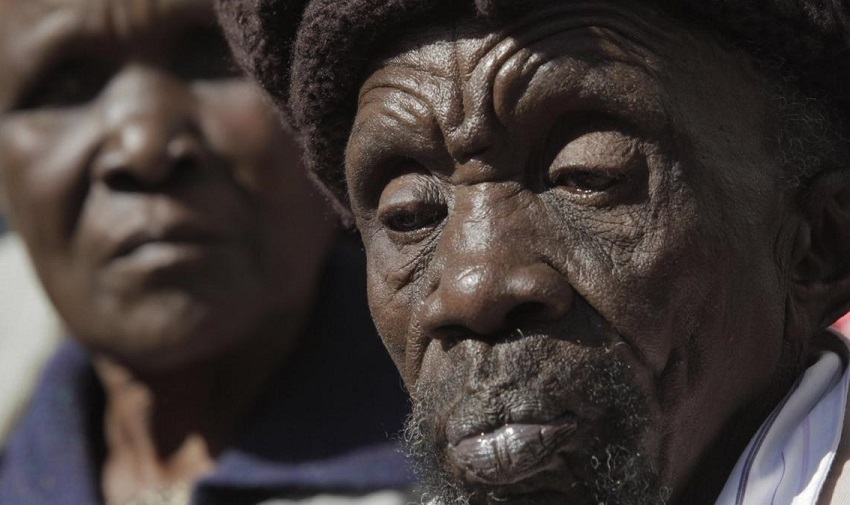While it’s only normal and reasonable for the world to treat its elderly with dignity and respect, it has emerged that the abuse of older people is on the rise across the globe.
A recent study revealed that about 1 in 6 older people experience some form of abuse. And, this figure is not only higher than the previous estimate. It is also expected that it will continue rising as populations age worldwide.
The study supported by World Health Organisation (WHO) was published in the Lancet Global Health. It gathered evidence from 52 studies in 28 countries from different regions. This included 12 low and middle-income nations. The following are the major findings of the study as highlighted by WHO.
“…Almost 16% of people aged 60 years and older were subjected to either psychological abuse (11.6%), financial abuse (6.8%), neglect (4.2%), physical abuse (2.6%) or sexual abuse (0.9%).”
Based on the above, WHO will strengthen its global strategy and action plan designed to fix the mess. Already, Ministers of Health has adopted WHO Global Strategy and Action Plan on Ageing and Health at the World Health Assembly in May 2016. Then, it was expressed that the strategy will provide guidance for coordinated action in countries that align with the Sustainable Development Goals.
Among other things, the priority actions for abuse of older people include improving studies on the frequency of elder abuse especially, in low- and middle-income countries from South-East Asia, Middle East, and Africa.
In these areas, there are little data collecting evidence and developing guidance on what works to effectively prevent and respond to elder abuse, WHO explained.
Noting that awareness about elder abuse is increasing across the world, WHO buttressed that Elder abuse refers to “actions or lack of appropriate action which can cause harm or distress to an older person, occurring within any relationship where there is an expectation of trust.
“All types of elder abuse can have an impact on the health and well-being of the older person,” added the health organization.
It’s said that psychological abuse is the most pervasive. This has to do with behaviors that harm an older person’s self-worth or well-being. They include but are not limited to name calling, scaring, embarrassing, destroying property or preventing them from seeing friends and family.
While financial abuse has to do with any activity involving the misuse of an older person’s money, property or assets; neglect refers to the failure to meet an older person’s basic needs like food, housing, clothing and medical care.
Health Effects of Elder Abuse
The health effects of elder abuse range from traumatic injury and pain to depression, stress, and anxiety.
Also, WHO identified that the abuse can lead to an increased risk of nursing home placement, use of emergency services, hospitalization and death.
Alana Officer, a Senior Health Adviser at WHO’s Department of Ageing and Life Course stressed that the abuse of older people has grave repercussions for humanity.
“Despite the frequency and the serious health consequences, elder abuse remains one of the least investigated types of violence in national surveys, and one of the least addressed in national plans to prevent violence.
“The abuse of older people is on the rise; for the 141 million older people worldwide this has serious individual and societal costs. We must do much more to prevent and respond to the increasing frequency of different forms of abuse,” Officer implored.
Similarly, Dr. Etienne Krug, a Director of WHO’s Department for the Management of Noncommunicable Diseases, Disability, Violence and Injury Prevention said:
“Elder abuse is rarely discussed in policy circles, less prioritized for research and addressed by only a handful of organizations.
See Also: Happiest Countries in The World 2017
“Governments must protect all people from violence. We must work to shed light on this important societal challenge, understand how best to prevent it, and help put in place the measures needed,” added Dr. Krug.
Things You Ought To Know
- Come 2050, the number of people aged 60 and above is expected to double across the globe and reach 2 billion.
- A vast majority of older people are living in low and middle-income countries.
- Should the rate of elder abuse remain constant, the number of people affected will, due to population aging, skyrocket to 320 million victims by 2050.
- Every June 15 is World Elder Abuse Awareness Day. The United Nations General Assembly in its resolution 66/127 upheld that it’s a day for the world to agitate against the abuse and suffering inflicted on the older generations.














